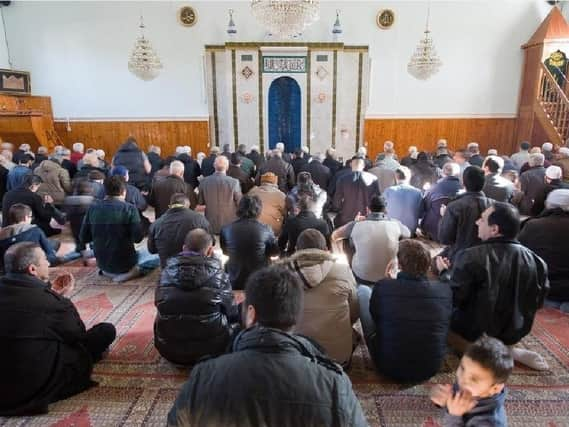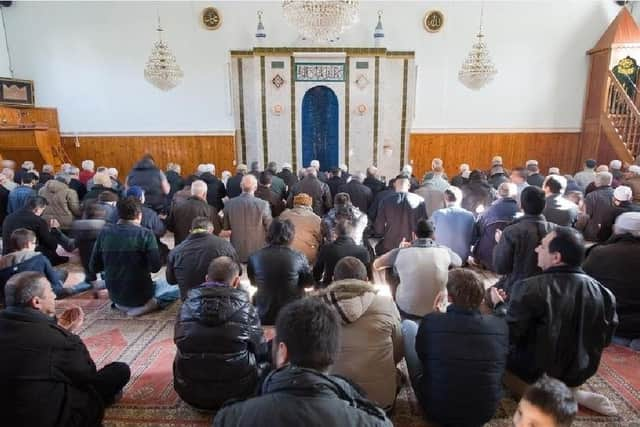Hate crime on rise in Lancashire


From racist attacks on taxi drivers to bullying of refugee children in school, a report published by Preston City Council makes for disturbing reading.
And the report reveals that under reporting of hate crime and a lack of awareness of what constitutes hate crime were key obstacles in fighting the problem.
Advertisement
Hide AdAdvertisement
Hide AdThere were 2,105 hate crimes recorded in Lancashire between April 2017 and March 2018 and to date, since April this year 1,121 hate crimes have been recorded.


Broken down by month that means an increase in 49 cases each month this year so far.
Now leaders in the community in Preston are urging victims of hate crime to report it in order to show the true numbers.
Chief inspector Ian Mills, of Lancashire Constabulary, was interviewed by councillors at the city council for the purposes of the investigation. According to the report he told them: “Hate crime only accounts for one per cent of crime statistics, suggesting that it is massively underreported given the proportion of diverse communities that live in Preston.”
Advertisement
Hide AdAdvertisement
Hide AdHe added that often the first time a hate crime or incident is reported, it has actually occurred several times perhaps over many years.
Children escaping war-torn countries have been labelled terrorists in the school playgrounds in Lancashire.
Taxi drivers in Preston have also been at the brunt of the verbal abuse.
Such words and name calling is the way that hate crime most commonly manifests itself.
Advertisement
Hide AdAdvertisement
Hide AdCity Coun Nweeda Khan said: “A number of refugee children have faced hate crime in schools and these have been racist incidents in which they have been bullied because they come from the Middle East and have been associated with being terrorists.
“Repeated episodes in school have left them not wanting to report it. There is a fear of being seen as the problem and they lack trust in authority.
“There is more awareness and education required in schools for teachers and children.
“Nationally hate crime has risen in the UK, in particularly since Brexit with incidents of Islamaphobia rising. Eastern Europeans are also facing hate crime.”
Advertisement
Hide AdAdvertisement
Hide AdAccording to the report on hate crime from the crime and disorder committee at the city council police already undertake educational work on the issue in schools.
Chief inspector of Lancashire Constabulary Jon Clegg told the scrutiny team spearheading the investigation that members of the police Vulnerability Hub are working closely with schools.
The report states: “They undertake hate crime awareness with role playing activities and this is linked to vulnerable families in crisis.”
When giving evidence on the issue the chief inspector told councillors that such early action work was also intended to break the cycle of use of certain terminology.
Advertisement
Hide AdAdvertisement
Hide AdThe report continues: “Sometimes it is a generational issue where older family members may use words which are not acceptable now.”
Police also told the scrutiny committee that hate crime towards taxi drivers and Asian women, particularly if they were wearing a hijab, has increased since Brexit.
Taxi drivers in Preston have to deal with derogatory racial slurs shouted at them on a regular basis.
Rifaqat Patel of Preston’s National Union of Rail, Maritime and Transport Workers (RMT) branch told the Post that Bamber Bridge and Lostock Hall are the worst areas for racist name calling with Caucasian males being the main perpetrators, followed by Caucasian women between the ages of 25 and 35.
Advertisement
Hide AdAdvertisement
Hide AdHe said: “Racial slurs are used against the non-white taxi drivers, which dominate the community and even words like ‘Muslim’ are made to seem almost derogatory towards us, which, rightly so, makes us feel like our job is not worth this much stress, hatred and emotional turmoil.
“We are ridiculed with racist stereotypes. The attacks do not have a set pattern throughout the week, but they all seem more common in the evening.
“Also taxi drivers are often targeted by teenagers throwing bricks and stones, particularly at black cabs. The effects the drivers’ confidence and obviously the cost to fix the damage comes out of their earnings. This happens mostly in the school holiday.”
While the majority of hate crime is race related, people who are disabled are also regularly targeted.
Advertisement
Hide AdAdvertisement
Hide AdChief executive at Preston-based Disability Equality Melanie Close says that she is working hard to get people to report hate crime to police.
“We had two incidents this week,” she said. “Neither have been reported to the police.
“We are working with the people. They always say it happens all the time but this particular person doesn’t want to make it worse, he doesn’t want to antagonise them.
“The names they are calling him are about his learning disability. He just says ‘I have just got to live with it’.”
Advertisement
Hide AdAdvertisement
Hide AdMelanie says that the hate crime disabled people are subjected to is predominantly round name calling but also around benefits.
She said: “The knock on effect is that people think its OK to shout out and call people lazy when they see someone on a scooter.
“What’s really sad is that when that happened to one person we know no one around him challenged that.
“Even if that individual doesn’t want to report it, it needs somebody who was there who heard it to challenge it.
Advertisement
Hide AdAdvertisement
Hide Ad“We really need society to go no, they don’t deserve that - to stop making the disabled person the problem.”
Coun Khan says that one of the reasons people are hesitant to report the name calling is because of a bureaucratic reporting system with no positive results.
However she also stressed why it is so important to report it. “People don’t want to be seen as a nuisance but this then leads to them becoming conditioned, accepting that people will treat them differently because of their characteristics,” she said.
Rifaqat also says that for taxi drivers, often all they end up with is a police log number with no changes to the level of hate crime.
Advertisement
Hide AdAdvertisement
Hide AdHe said: “Drivers do report to police but they end with log number and police never attend the spot.
“While I do think taxi drivers do not contact the police as much as they could because of the complications that may arise from it, I do feel that the police can intervene more by educating themselves on what it takes to face the reality of a taxi driver, and empathise with our cause.
“Hopefully by doing this, they will be able to create a bond with taxi drivers in the community, and eventually reprimand those who commit these hate crimes.”
Urging victims of hate crime to report it to the police, a spokesman from the police said: “Lancashire Constabulary prides itself on striving to make its communities safer and feel safer, this is no more so than in those communities who are particularly vulnerable to hate crime and are victimised because of animosity towards them motivated by their religion, faith, disability, gender identity or sexual orientation.
Advertisement
Hide AdAdvertisement
Hide Ad“We are committed to tackling all crime motivated by hate and prejudice and we would urge anyone who has been a victim of a hate crime to have the confidence to come forward and report it to police.
“Victims will always be dealt with professionally and sympathetically.”